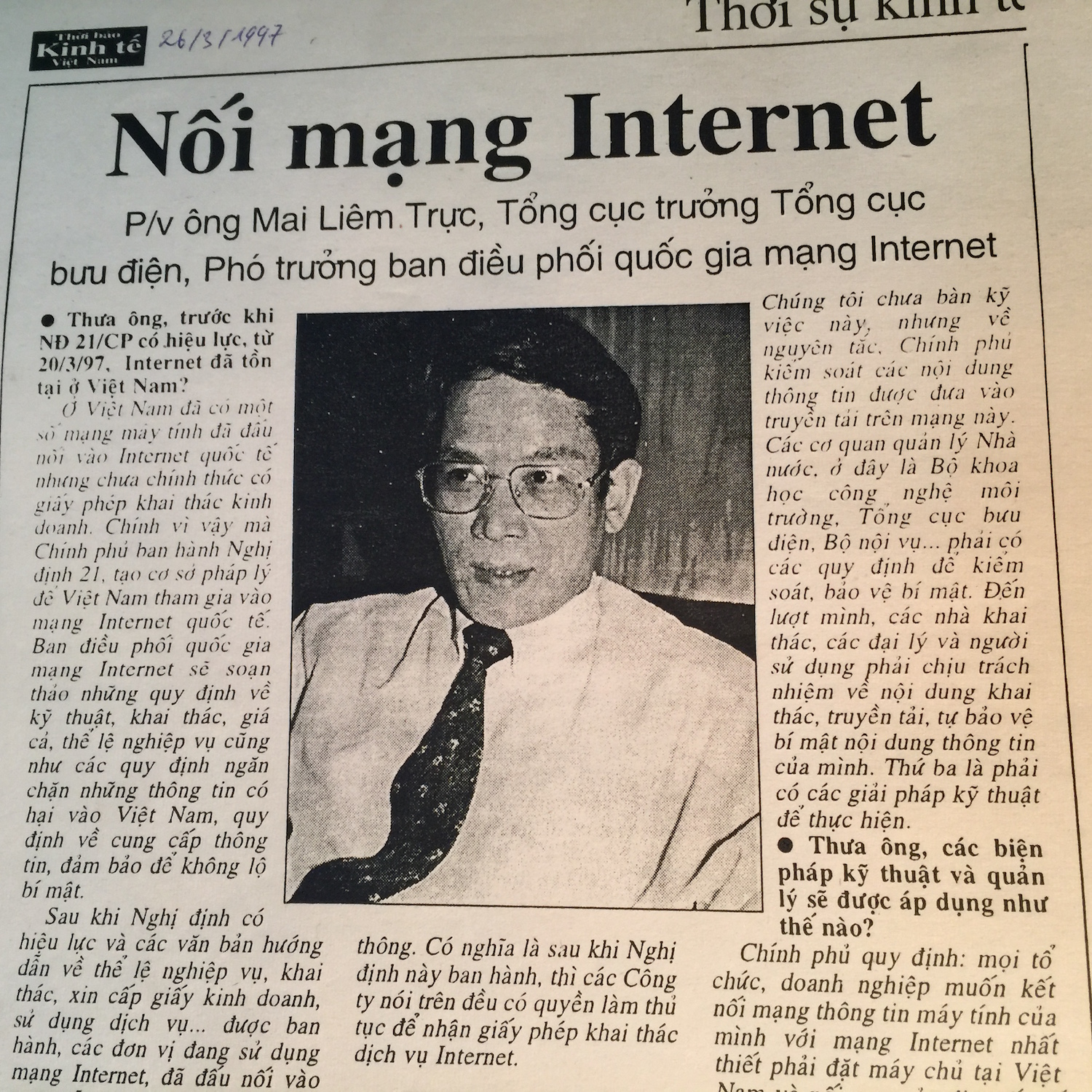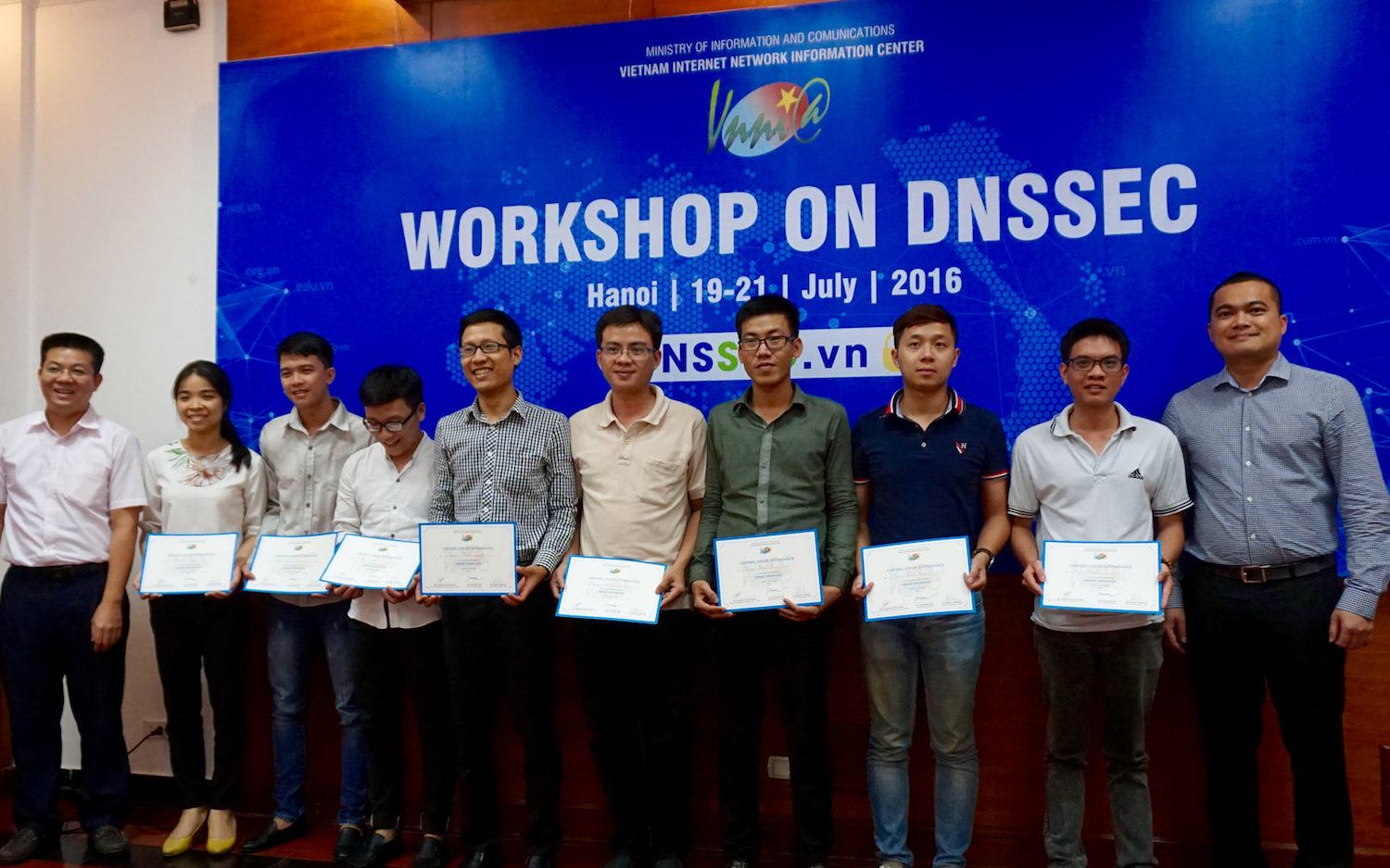
2016 marked the 30th anniversary of Viet Nam government’s progressive Đổi Mới (open-door) policy: an economic reform program authorized by the government in 1986 with the goal of embracing a socialist-oriented market economy.
The policy has been widely credited for the growth in the country’s economy; since 1990, Viet Nam’s economic growth has been among the fastest in the world and the second strongest in Asia, only surpassed by China.
“Without doubt, the Đổi Mới was the most important policy for establishing and growing the Internet in Viet Nam,” says Dr Mai Liem Truc, former Deputy Minister of the Ministry of Post and Telecommunications, who admits at the time he was unaware of the monumental effect the policy and the Internet would have on his country.
Championing the Internet in government
Truc’s first experience with the Internet was in 1991 when he attended the Global Traffic Meeting (GTM) of the International Satellite Organization (Intelsat) in Washington DC.
He was Vice President of the Vietnam Post and Telecommunication Corporation (VNPT) – the incumbent operator that had only recently spun off from the Department General of Posts and Telecommunications (DGPT) – as well as the Managing Director of Vietnam Telecom International (VTI) – a subsidiary company of VNPT, in charge of overseeing telecommunication.
“I went to GTM to discuss and to sign service agreements with foreign partners for leasing Intelsat Transponders for bilateral telecom connection,” recalls Truc. These agreements were an important part of establishing preliminary networks that allowed for international Internet trial connections.
Over the next six years, Truc moved from Vice President to CEO of VNPT, where he oversaw the digitalization and automation of the Viet Nam telephone network. He later became Head of the DGPT, during which time he advised and reported directly to the Prime Minister on matters including regulations on the establishment and operation of the Internet, ISP licenses and tariffs.
“The biggest challenge with developing policies for the Internet was the concern of national security and social stability. There was a general concern, especially from the politicians, of losing national secrets and how Internet access could undermine the national culture,” says Truc.
“I spent much time advising and convincing Ministers on how connecting to the Internet would allow our people to truly take advantage of the open markets that they had created through Đổi Mới.”
Finally, on 19 November 1997, Truc had the fulfilling task of announcing, at an international press conference, that Viet Nam was officially connected to the Internet.
Establishing VNNIC
In the years following, Truc continued to advise the government on the need to nurture the budding industry by supporting open policies and regulations of Internet operations, often inviting industry leaders and experts to discuss and develop strategies of national significance.
“Most leaders of the DGPT, including myself, came from the industry, so we knew from experience the importance of including these stakeholders in such discussions,” says Truc.
One community-led discussion Truc remembers was the call for a non-profit organization responsible for registering domain and Internet number resources. This eventually led to the establishment of the Vietnam Network Information Center (VNNIC) in 2000.
At the time of VNNIC’s inception, APNIC was no longer accepting new National Internet Registries (NIRs). VNNIC operated initially under VNPT’s APNIC membership, moving into the operational areas it would eventually fill as a fully-fledged NIR, and assisting VNPT members to meet the obligations of APNIC membership.
The importance of VNNIC’s role was formally recognized by the APNIC community in 2003 at the APNIC 15 Conference when VNNIC was welcomed as the Vietnamese NIR.
More work is required to open new doors
Since the turn of the century, the DGPT has undergone a number of renamings: first the Vietnam Ministry of Posts and Telematics (MPT), of which Truc was the standing Deputy Minister until he retired in 2006, and more recently the Ministry of Information and Communication (MIC).
MIC administers the Vietnamese postal system, telecommunications, information technology, electronics, the Internet, radio transmission and emission techniques, radio-frequency management and national information infrastructure, management of public services, and telecommunications and information technology enterprises in Viet Nam.
Although he has been retired for over a decade, Truc keeps himself busy in the Internet community in Viet Nam, offering his valued opinion to industry, government and the media.
One area he is vocal on is the need to both connect and educate the 30 million people in Viet Nam who do not have access to the Internet.
“It’s a major challenge which MIC and Viet Nam as a country have to overcome if we are to continue to sustain our growth,” says Truc. “It’s not enough to just provide access; we need to develop capacity so they can take advantage of the benefits the Internet can offer. This, combined with continual government support, is how Viet Nam can open the door to the fourth industrial revolution that technologies like the Internet of Things promise.”
The views expressed by the authors of this blog are their own and do not necessarily reflect the views of APNIC. Please note a Code of Conduct applies to this blog.



Great story!!!